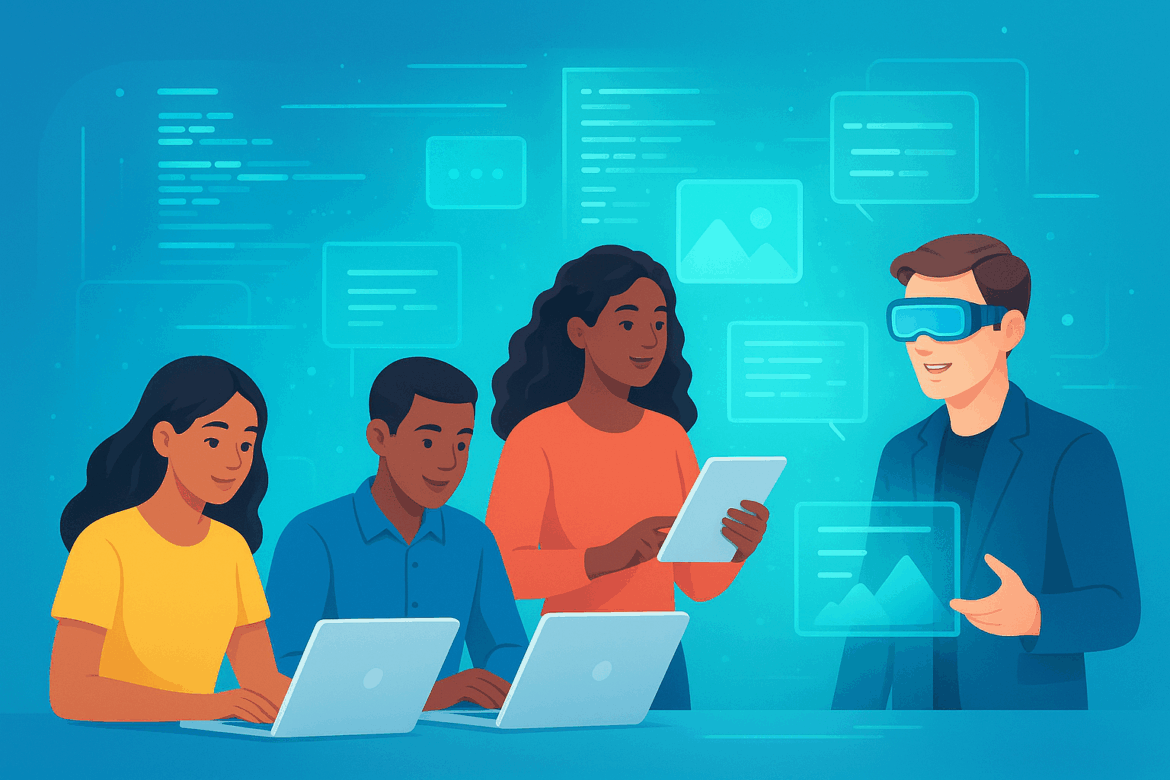Artificial Intelligence (AI) isn’t just for big tech companies or research centers anymore. As AI grows faster, startups small companies, and even solo creators can now use it. We call this the Democratization of AI—it means AI tools, data, and resources are now open to everyone, not just the experts.
At the same time, Generative AI—a kind of AI that can make text, pictures, videos, code, and designs—is sparking a new round of breakthroughs. Tools like ChatGPT, MidJourney, and Stable Diffusion prove how strong AI can be when regular people get to use it.
What is the Democratization of AI?
The democratization of AI means AI technologies are now available and affordable. You don’t need a PhD in data science or expensive equipment anymore. Businesses and individuals can now use AI models, APIs, and no-code platforms that are ready to deploy.
- Before: big companies like Google, Amazon, and Microsoft could afford large-scale AI systems.
- Now: Cloud platforms open-source libraries, and AI-as-a-Service allow even a small startup to add AI to its products.
This creates a level playing field and speeds up new ideas across industries.
What is Generative AI?
Generative AI is a type of artificial intelligence that can create new stuff based on what it’s learned. Some examples are:
- Writing blog posts, emails, or product descriptions.
- Making lifelike images, artwork, or 3D models.
- Creating code snippets, chatbots, or whole apps.
- Making custom ads, videos, or music.
Generative AI has a big effect on creativity and productivity helping businesses grow faster without as much work.
Why Democratization + Generative AI Matters
When democratization and generative AI team up, they have a huge impact:
- Accessibility – People can use AI tools even if they’re not tech experts.
- New ideas – Small companies can go toe-to-toe with big businesses.
- Productivity – Letting computers handle jobs like writing content, designing, and coding saves money and time.
- Customization – Companies can give personalized customer experiences to lots of people.
- Global Growth – More people around the world learn about AI leading to more skilled workers and job openings.
Real-World Applications
- E-commerce: Computer-created product listings, pictures, and focused ads.
- Healthcare: AI has an impact on medical diagnosis and finding new drugs.
- Engineering: AI design for new buildings, circuits, and testing.
- Education: Custom learning with AI teachers.
Challenges Ahead
Despite its good points, there are issues:
- Bias and Ethics: AI systems can show human prejudice in their info.
- Job Changes: Some jobs might be done by machines, so people need to learn new skills.
- Data Privacy: Using private info with AI needs tight security.
Final Thoughts
The spread of AI and generative AI has an impact on different fields and gives power to people all over the world. Small companies and individuals now have the chance to make new things come up with fresh ideas, and go head-to-head using AI. This isn’t just for big players anymore.
If you run a business or work as a pro, it’s time to get on board with AI, check out what it can do, and get ready for how jobs will change down the road.
